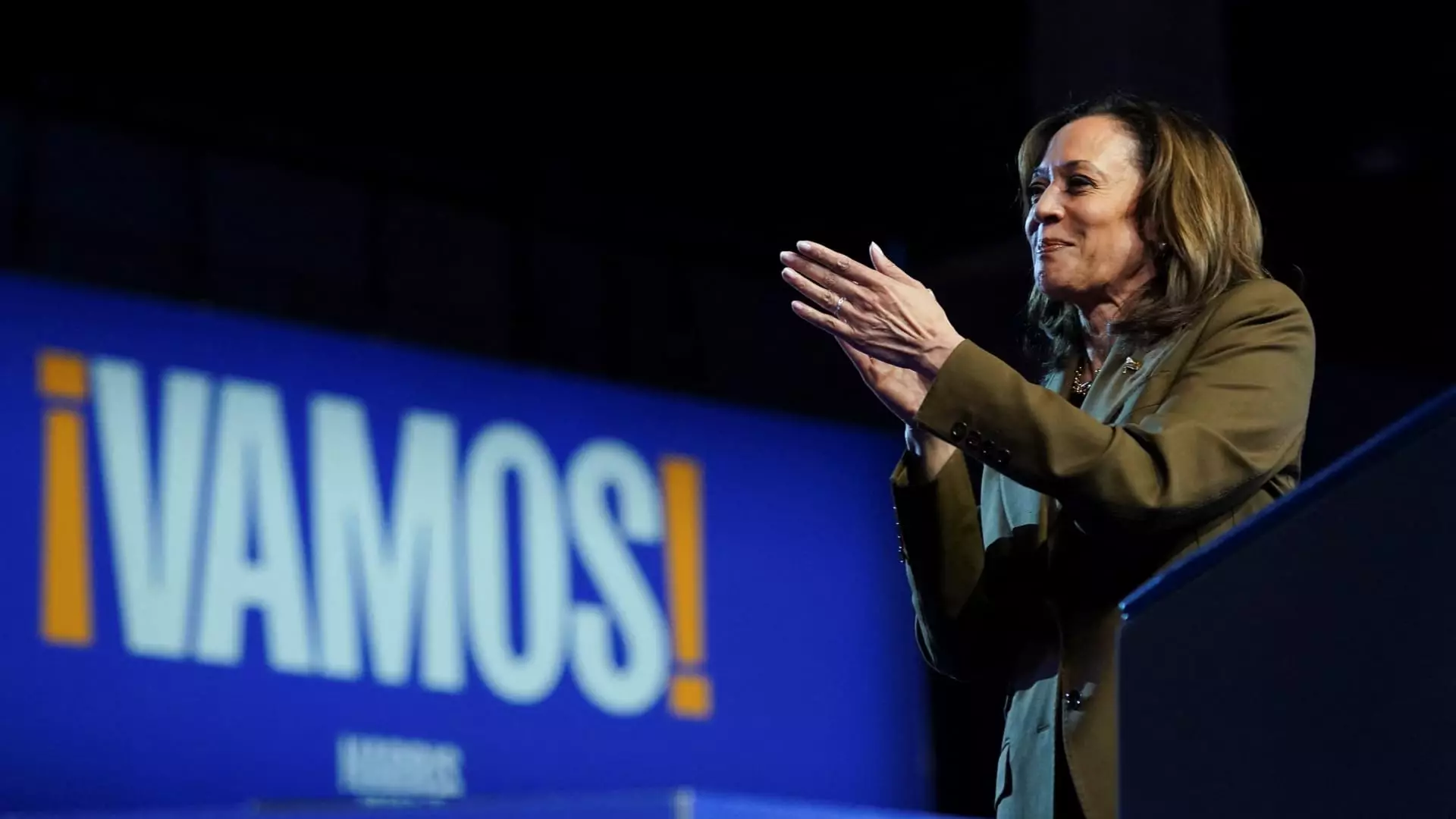In a strategic move aimed at re-engaging crucial voter demographics, the Kamala Harris campaign is orchestrating a series of outreach events centered around small businesses across six strategically important battleground states. The initiative, aptly named “Small Business for Harris-Walz,” is designed to resonate particularly with Black and Latino communities—voters who played pivotal roles in the Democratic victories during the 2020 election cycle. This carefully crafted approach addresses a growing concern as these groups show signs of deserting the Democratic base in favor of the Republican nomination.
While Vice President Kamala Harris herself will not be attending these events, the campaign will deploy “elected officials” and “community leaders” to represent her vision and connect with local entrepreneurs. The absence of Harris raises questions regarding the effectiveness of surrogate-led campaigns in contexts where direct engagement is typically favored. Nonetheless, the goal remains clear: to counteract the gains being made by Donald Trump, who has been vocal in appealing to these communities by asserting his intentions to uplift Black and Hispanic voters, a strategy that seems to be resonating on the ground.
Trump’s rhetoric, which recently included a direct appeal to Black and Hispanic voters during a rally in Georgia, is strikingly assertive and aims to position him as a viable alternative to Democratic leadership. This poses significant challenges for Harris and the Democratic camp, especially given the recent slippage of these crucial demographics away from their traditional alignment. The Harris campaign’s response appears to draw on previous initiatives laid out by President Biden when he was a frontrunner for the presidency, especially as he highlighted the economic gains attained by minority-owned small businesses during his tenure.
Interestingly, this current campaign strategy echoes those earlier approaches, emphasizing a narrative of economic uplift that seeks to galvanize voters who may feel disenfranchised in a post-pandemic landscape. The disparities created by the COVID-19 crisis remain a palpable concern, and Harris’s campaign is leveraging those discussions to draw a stark contrast between public service and Trump’s self-interest. The campaign director for small business engagement, Richard Garcia, articulates this message by positioning Harris as a dedicated advocate for small businesses, in stark opposition to Trump’s transactional approach.
In conjunction with outreach efforts, Harris has laid out specific policy proposals aimed at fostering small business growth. Notably, she has introduced a plan to increase the tax deduction for startup expenses from $5,000 to $50,000. This bold policy change signals an understanding of the financial challenges that fledgling entrepreneurs face and demonstrates a commitment to create an environment in which small businesses can thrive. By championing such legislative initiatives, the Harris campaign seeks not only to provide relief but also to inspire confidence among potential voters that meaningful change is feasible under her leadership.
Over the forthcoming week, the Harris campaign’s targeted blitz in states like Arizona, Georgia, Michigan, Nevada, North Carolina, and Pennsylvania will feature a variety of grassroots activities, ranging from volunteer training sessions to community organizing events. These initiatives could prove essential in reshaping voter perceptions and reinvigorating support for Harris ahead of the election. As the campaign unfolds, it will be vital for her surrogates to effectively articulate these messages and engage with constituents to reclaim trust from key voter segments that have begun to waver. The stakes are high, and the efficacy of this strategy may very well set the tone for the upcoming electoral battle.


Leave a Reply